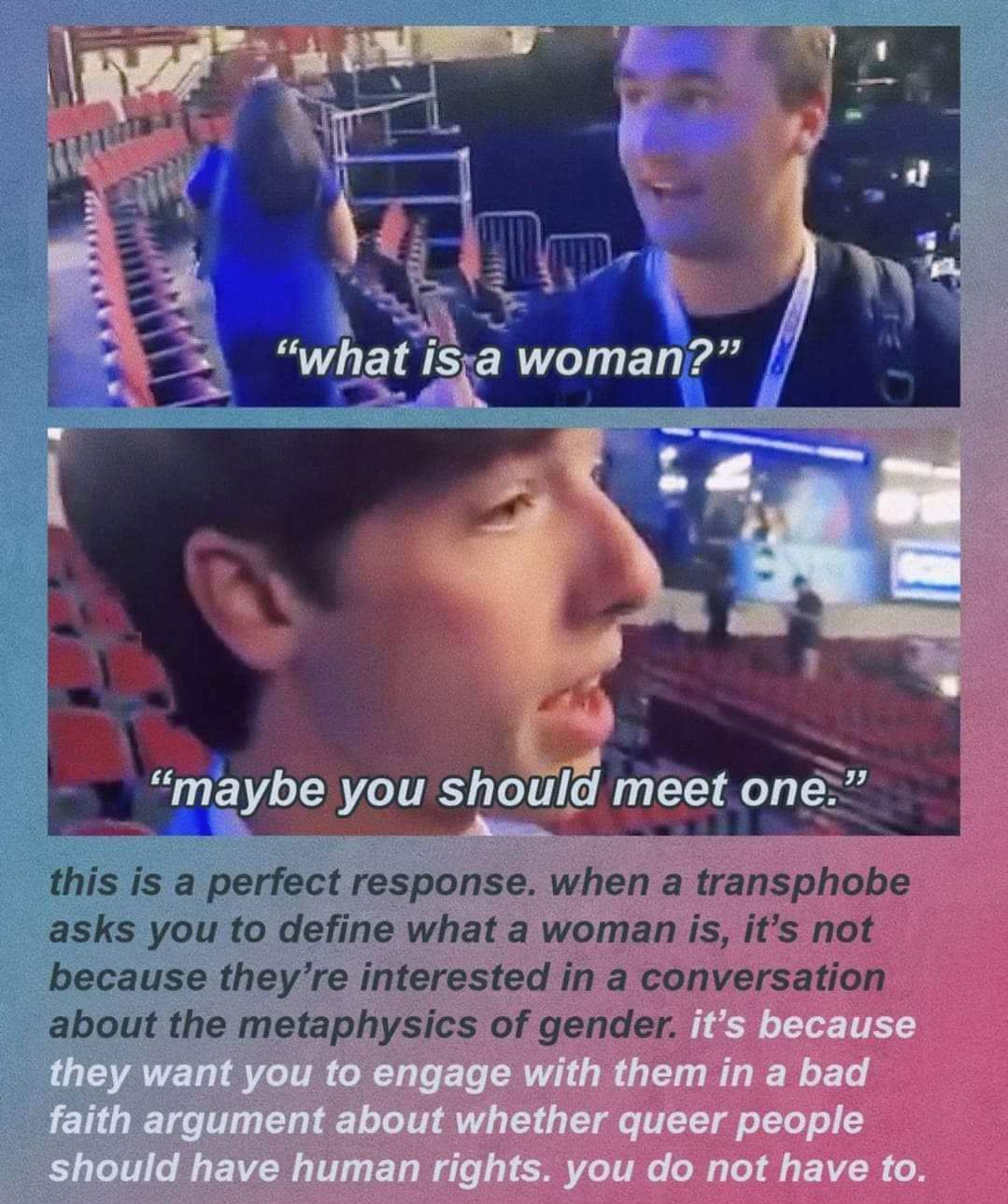this post was submitted on 22 Aug 2024
1082 points (94.1% liked)
Political Memes
6048 readers
2781 users here now
Welcome to politcal memes!
These are our rules:
Be civil
Jokes are okay, but don’t intentionally harass or disturb any member of our community. Sexism, racism and bigotry are not allowed. Good faith argumentation only. No posts discouraging people to vote or shaming people for voting.
No misinformation
Don’t post any intentional misinformation. When asked by mods, provide sources for any claims you make.
Posts should be memes
Random pictures do not qualify as memes. Relevance to politics is required.
No bots, spam or self-promotion
Follow instance rules, ask for your bot to be allowed on this community.
founded 2 years ago
MODERATORS
you are viewing a single comment's thread
view the rest of the comments
view the rest of the comments

https://philosophy.stackexchange.com/questions/98474/is-this-a-fallacy-a-woman-is-an-adult-who-identifies-as-female-in-gender
There's no real issue with recursive (self referential) arguments in philosophy or math. An example being the Fibonacci Sequence. I'm going to assume your criticism for this is that you, like many conservatives, think this definition is circular.
Oh, I was looking for something like this. The husband and wife example is really good.
Holy gish gallop.
Just engage with me as a person instead of a place to throw text at.
That's fine, if you can't keep up with the few paragraphs I will accept your resignation and defeat. It's cool I won here and we can agree "a woman is anyone who identifies as a woman," is a good enough definition for women.